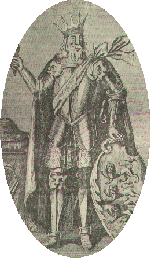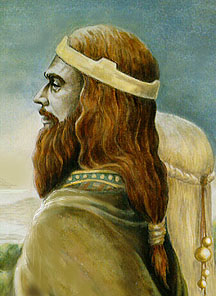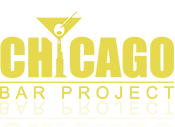 Brian Boru’s by name alone may inspire the same heroism and gallantry of the real Brian Boru, the first and only High King of Ireland. However, the reality is that Brian Boru’s was a sketchy little pub located on a derelict part of Broadway, just south of Surf and wedged between tarot card readers, adult bookstores, an arcade, and a few other questionable establishments. In the midst of this seedy nightlife, Brian Boru’s was the crazy little brick structure with a tiny balcony that was held up by thin crooked pillars. The Official Chicago Bar Guide recalls the following about Brian Boru’s in 1994: “Downscale place is dark and dull in front, but offers a fine beer garden in back. Who would expect the leafy trees and the flower boxes? There’s even a full-service bar by the windmill. Extra fun: bringing your own steak on Tuesdays.” For me, Brian Boru’s was one those bars that I always felt intrigued by when passing by, but too scary to actually stop in for a beer.That is a similar feeling I had regarding the rundown little Irish pub located two blocks north that I did visit, but regretted afterwards – the place where the bartender evilly offered $1 shots at 3:00 a.m. on a Monday morning, when my friend from the Army on leave and I were already clearly wasted.
Brian Boru’s by name alone may inspire the same heroism and gallantry of the real Brian Boru, the first and only High King of Ireland. However, the reality is that Brian Boru’s was a sketchy little pub located on a derelict part of Broadway, just south of Surf and wedged between tarot card readers, adult bookstores, an arcade, and a few other questionable establishments. In the midst of this seedy nightlife, Brian Boru’s was the crazy little brick structure with a tiny balcony that was held up by thin crooked pillars. The Official Chicago Bar Guide recalls the following about Brian Boru’s in 1994: “Downscale place is dark and dull in front, but offers a fine beer garden in back. Who would expect the leafy trees and the flower boxes? There’s even a full-service bar by the windmill. Extra fun: bringing your own steak on Tuesdays.” For me, Brian Boru’s was one those bars that I always felt intrigued by when passing by, but too scary to actually stop in for a beer.That is a similar feeling I had regarding the rundown little Irish pub located two blocks north that I did visit, but regretted afterwards – the place where the bartender evilly offered $1 shots at 3:00 a.m. on a Monday morning, when my friend from the Army on leave and I were already clearly wasted.
The inspiration for this drinking den came from the once High King of Ireland, Brian Boru, who is also known as Brian Boramha, Brian mac Cennetig, Brian Boroimhe, and Brian of Boruma. Brian, in fact used no surname, but became known as “Boru” after the town in which he was born, Béal Bórú, near Killaloe, County Clare. Brian Boru was born in the year 942 and was the last of twelve sons born to King Cennedig, head of the Dal Cais tribe. At the time, the Vikings held much of Ireland in their grip partly from battle, partly from fear. Because his mother and much of his tribe were brutally murdered by them, Brain Boru began waging guerilla warfare on the Vikings. When his brother, Mahon, was killed by the Vikings, Brian assumed Mahon’s position of King of Munster, and slowly increased his strength and reputation in Southern Ireland. Brian Boru eventually defeated the Vikings and ousted them from Ireland in 980 when Dublin was retaken. In doing so, Brian Boru became the King of Southern Ireland. Twenty years later, with the backing of the church, Brian Boru usurped power from Malachy, King of Meath and of Northern Ireland, to become “Ard Rí,” meaning “High King” of Ireland. The North and South of Ireland were then united.
 In 1013, Maelmordha, King of Leinster, revolted against Brian Boru’s power and allied with the Vikings. The combined forces then summoned reinforcements from Boru’s other Irish rivals and the Viking nations, as far away as Normandy and Iceland. Then, on Good Friday, 1014 at Clontarf, Brian Boru’s Irish army faced a huge contingent of Vikings. Nearly 4,000 Irishmen were killed at the Battle of Clontarf, including Brian’s son Murrough, but the Viking/Leinster forces suffered even heavier losses. While the Vikings were defeated, they were able to attack Brian Boru’s camp one final time before boarding their ships back to Scandinavia. At age 72, Brian Boru was struck a mortal wound from King Brodar of Man. But, before he died, Brian was able to exact revenge on Brodar by beheading him. A tune known as “Brain Boru’s March” was written in commemoration of the battle, and is still popular today. The tempo of the tune traces the victory and eventual discovery of Brian’s body.
In 1013, Maelmordha, King of Leinster, revolted against Brian Boru’s power and allied with the Vikings. The combined forces then summoned reinforcements from Boru’s other Irish rivals and the Viking nations, as far away as Normandy and Iceland. Then, on Good Friday, 1014 at Clontarf, Brian Boru’s Irish army faced a huge contingent of Vikings. Nearly 4,000 Irishmen were killed at the Battle of Clontarf, including Brian’s son Murrough, but the Viking/Leinster forces suffered even heavier losses. While the Vikings were defeated, they were able to attack Brian Boru’s camp one final time before boarding their ships back to Scandinavia. At age 72, Brian Boru was struck a mortal wound from King Brodar of Man. But, before he died, Brian was able to exact revenge on Brodar by beheading him. A tune known as “Brain Boru’s March” was written in commemoration of the battle, and is still popular today. The tempo of the tune traces the victory and eventual discovery of Brian’s body.
Sadly, Brian Boru’s death created a power vacuum in Ireland that was never filled, resulting in Ireland’s descent into chaos and anarchy. There would never be another king powerful enough to rule all of Ireland. Today, Boru is also known as the progenitor of the Clan O’Brien, through his four wives and thirty concubines. Brian Boru also became associated with the national symbol of Ireland – what’s now known as the “Brian Boru Harp,” (as seen on Guinness cans everywhere). For more information on Brian Boru, check out the O’Brien Clan Foundation.
Unfortunately, Brian Boru’s pub in Chicago suffered a similar tragic fate to that of its namesake when the entire block it was on was razed in 1997 to make room for a World Market and Hollywood Video complex. However, Brian Boru and, to a lesser extent, the odd little pub located on Broadway in Chicago, shall be remembered for a long time hence. Erin go Bragh!
“The back garden and outdoor grill were the best kept secret in the neighborhood. Caught many Cub games and Bulls’ first three championships here. And Cannibal Cheerleaders on Crack used to be across the street. The open front window with the toothless lush was a beard for the best garden in the city in back.”
– S.S. (April 16, 2003)
“My wife and I are celebrating 20 years this year. One of our first dates was at Brian Boru’s. I was surfing to find what happened and saw the link. Here’s our story:
“‘Tis true they offered to cook your steak for $1. On our date I decided to give it a try. Went to Jewel and got one of the lowest cost (cheapest) stakes they sold, no bones, but not filet. We brought our stakes in and had a drink and waited for the steaks to be cooked. When they arrived, they morphed into T-Bones, I didn’t catch on until my first bite when my date said – are these what you bought? I was so embarrassed at already eating a piece of stake I didn’t buy, I panicked and ate as fast as I could. My date couldn’t stop laughing at my predicament, and laughed for weeks about that. Ahhh memories.”
– G.D. (March 2, 2007)
